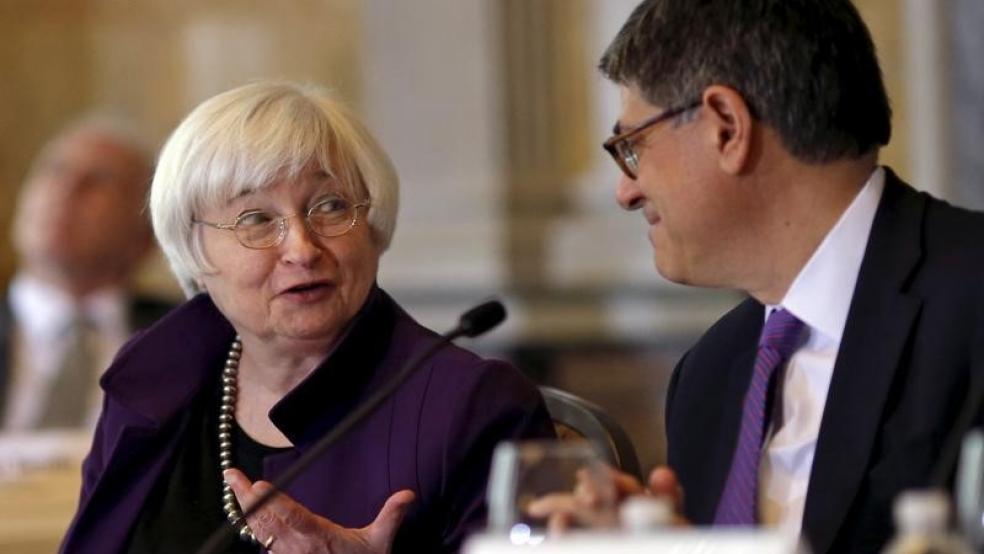NEW YORK (Reuters) - The U.S. Federal Reserve is likely to stick with plans to raise interest rates later this year, with progress towards its employment and inflation goals helping allay concerns over the economy's recent weakness, current and former Fed officials say.
Fed Chair Janet Yellen, who on Friday will talk about the economy's prospects, is expected to acknowledge the recent sluggishness, including near stagnant performance in the first few months of the year.But she will also probably repeat the mantra that better days should follow a temporary swoon, and highlight the economy's steady job growth, keeping the Fed on track for its first policy tightening in nearly a decade.Hours ahead of her speech inflation showed a flicker of life, with the Consumer Price Index, once stripped of volatile food and energy components, recording a 0.3 percent rise in April. Though the Fed uses another measure for its 2 percent target, the CPI report on Friday showed prices increasing across a broad set of items, giving the Fed "affirmation core trends are moving their way," said TD Securities analyst Eric Green. "In effect, inflation is not an obstacle to tightening."Interviews with current and former Fed officials suggest that policymakers do not need much more evidence that the economy can withstand a modest initial rate rise by September, long seen as a reasonable time to act. "We have not seen a significant disruption on the employment side, and inflation looks like it's pretty well contained for now," despite the first-quarter slowdown, said Jeffrey Fuhrer, senior policy advisor at the Boston Fed, which is among the more dovish Fed banks. Alan Blinder, a former Fed Vice Chair, said the combination of the economy's lower potential output, worries about prompting financial instability, and the fact that the Fed has long telegraphed a move in 2015 are speaking in favor of at least taking the first step towards reducing monetary stimulus."I wouldn't be totally shocked if the Fed (raised rates by) 25 basis points either in September or December, and then just held there for a while to see what happens," said Blinder, an economics professor at Princeton University.The central bank has kept rates near zero since 2008 and bought $3.5-trillion in bonds to pull the economy from a recession that had sent joblessness as high as 10 percent. Unemployment is now cut almost in half and runs near estimates of full employment, and monthly jobs growth so far this year has averaged 194,000. On Thursday, unemployment claims reinforced the labor market's resilience.While inflation is below target, oil prices are off their lows and the soaring dollar has come off peaks scaled in March, which should support U.S. prices.To be sure, the harsh winter, strong dollar, a seaport labor dispute and cuts in energy-sector spending could show the economy actually contracted in the first quarter after preliminary data showed it grew by a puny 0.2 percent. Some of that gloom lingers on, with unexpected weakness in consumer spending, business investment, and a growing trade deficit fuelling concerns that the Fed's "lift-off" could be pushed back, possibly until sometime next year.A New York Fed survey of primary dealers showed the majority still expected the central bank to raise rates this year, but expectations shifted towards September and December compared with the previous February poll where still nearly a third bet on a June lift-off.CONSISTENT EMPLOYMENT GROWTHYellen has said she wants to be "reasonably confident" that inflation, which is 1.3 percent by the Fed's preferred measure, will head toward a 2-percent goal before raising rates, but that a significant pick-up is not a precondition to move. This week, minutes from the Fed's April meeting showed most policymakers expected inflation to rise to target in the medium-term, thanks in part to the oil rebound. "One of the things the U.S. has going for it is ... a broad feeling that inflation will gradually rise back and, importantly, we haven't seen slippages," said Mark Sniderman, the Cleveland Fed's former chief policy officer who is now at the Weatherhead School of Management at Case Western Reserve University."We don't seem to be in a world where we're concerned about sliding back to 1 percent," he said. Policymakers have stressed they are looking for consistent employment growth to ensure wages will continue to tick up. At a monthly average of 249,000 over the last 12 months, jobs growth is in line with the run-up to the Fed's prior four tightening cycles since the 1980s.Yellen has made clear she would rather err on the side of looser policy in hopes of bringing more people back to work after the biggest economic dislocation since the Great Depression. Her speech in Providence on Friday at 1 p.m. local time (1700 GMT) may clarify whether she is starting to believe this is as good as it gets, and that a rate rise will be soon necessary."I think the Fed would very much like to get going on this some time this year, even the more dovish members would probably be willing, and maybe even desire, a small move," said former Richmond Fed President Al Broaddus. "I don't think this spate of data is enough to derail that expectation yet." (Additional reporting by Howard Schneider in Washington; Editing by Tomasz Janowski)Fed still seen in lift-off mode as Yellen takes center stage

© Carlos Barria / Reuters



